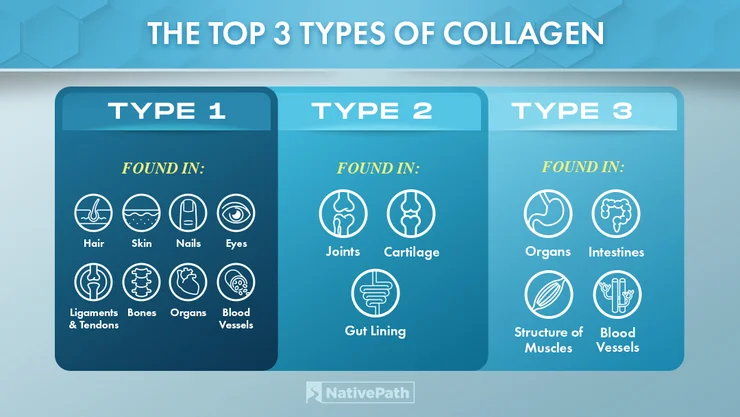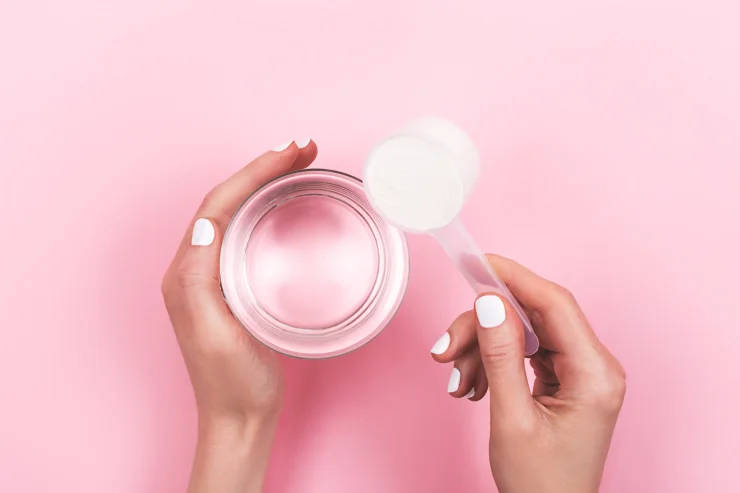Collagen can support the health of your bones, joints, muscles, skin, hair, and nails (1, 2, 3).
Collagen is particularly beneficial for women who are postmenopausal, or those who are still going through it.
Why?
Well, at this stage of life, the body’s natural collagen is lower than it’s ever been. As you age, your body’s collagen production slows down. Starting as early as your 20s, collagen production decreases by 1% each year. So by the time menopause rolls around, you’re already down to about HALF of the collagen your body once had (4, 5).
This results in a whole array of health issues: Bone-on-bone pain, crepe-like skin, irregular digestion, thinning hair and nails, a low DEXA score, and more.
But wait—don’t be discouraged yet!
Supplementing with collagen during or after menopause can REVERSE that steep collagen loss—and combat signs of aging, too.
For starters, collagen can help protect and increase your bone density. In a 2018 study, women with low bone mineral density (BMD) found that taking collagen peptides daily for a year increased the bone density of their neck and spine (6, 7).
Collagen can also help alleviate creaky joints—and the aches and pains that come with them (8, 9).
If your goal is to have plumper, healthier-looking skin, collagen can help make that happen too…
A 2019 review of 11 different studies showed that supplementing daily with collagen for up to 6 months can improve your skin’s elasticity, hydration, and overall collagen level (2).
Now comes the question: Which TYPES of collagen should you take in order to experience the same results as the women from the studies above?





